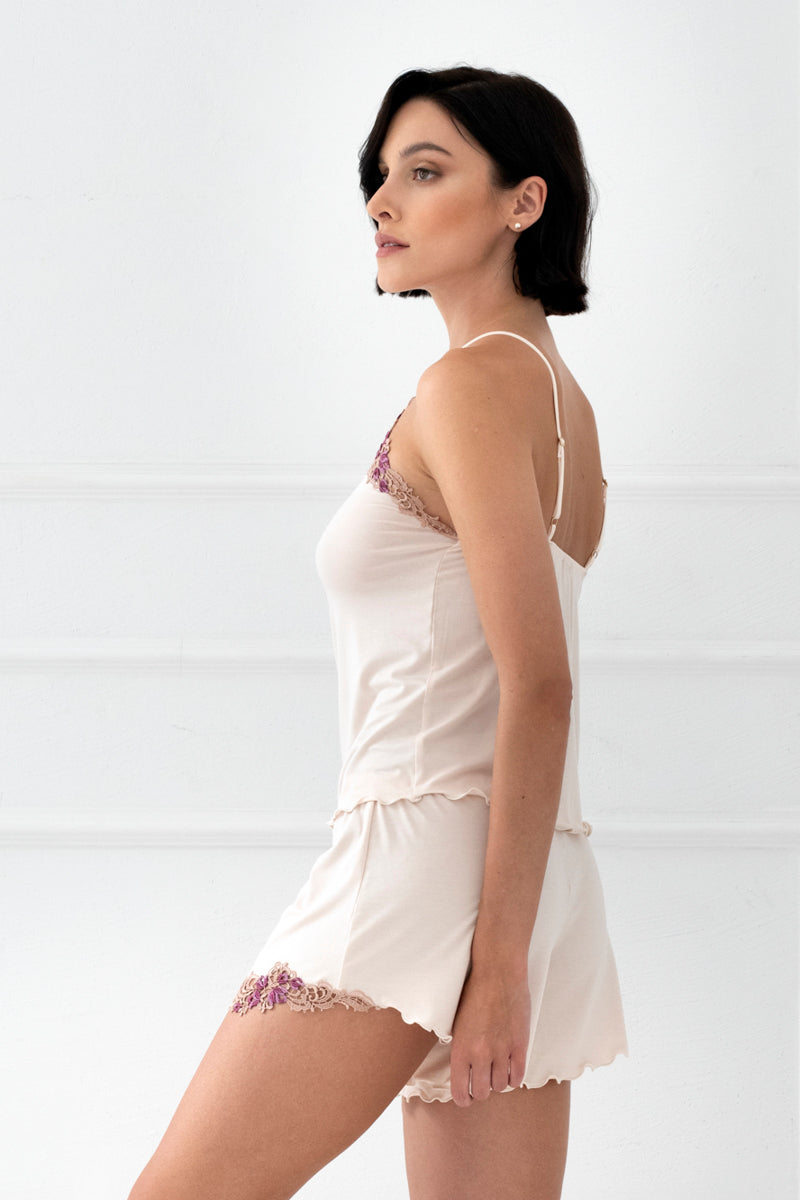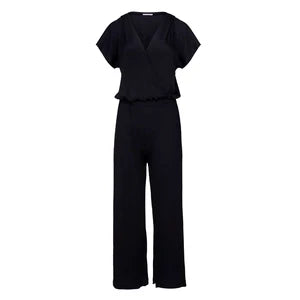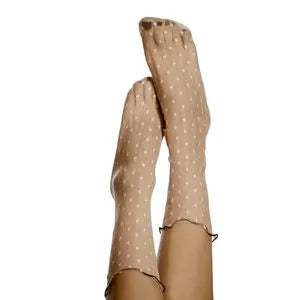Sensitive skin and a tendency to allergies are challenges that require special care – especially when it comes to comfortable sleep. Poorly fitting pajamas can cause irritation, itching, and even insomnia. Fortunately, the right material and a well-thought-out design can work wonders. In this article, we'll show you how to choose the best pajamas for allergy sufferers and those with sensitive skin , which fabrics work best, and what to look for when buying. If you're looking for a combination of comfort, quality, and safety, you've come to the right place.
The best materials for sensitive skin
Choosing the right material is a key step in ensuring comfort for people with allergies and skin prone to irritation. Natural fabrics are best, as they allow the skin to breathe and don't cause allergic reactions. Cotton and viscose are the most common types of fabrics – both are delicate, soft, and excellent at regulating body temperature during sleep.
Cotton is a classic among materials – it's breathable, hypoallergenic, and exceptionally durable. For those with hypersensitivity , women's cotton pajamas are perfect, as they are gentle on the skin and don't cause chafing even with prolonged use.
Viscose , on the other hand, although a plant-based fiber, is surprisingly soft and breathable. It's pleasantly cool to the touch, making it an ideal choice for those with atopic dermatitis or eczema. If you're looking for something unique, check out women's viscose pajamas – a combination of comfort, aesthetics, and attention to the needs of sensitive skin.

Why is it worth avoiding artificial fabrics?
In fact, when we say "artificial," most of us mean "synthetic" materials. Artificial materials are made from natural materials and chemically treated. Synthetic materials are entirely man-made from fibers that don't occur naturally. While they may seem practical and aesthetically pleasing at first glance, synthetic fabrics are one of the main enemies of sensitive skin . Materials like polyester, nylon, and acrylic are commonly used in sleepwear due to their low production costs and durability, but their impact on delicate skin can be particularly damaging.
Why? First and foremost, synthetic fibers are airtight, which disrupts the body's natural thermoregulation during sleep . Skin can't breathe, leading to excessive sweating, which creates ideal conditions for bacteria and fungi to thrive. Furthermore, synthetic fabrics are often dyed with chemical pigments that can cause allergic reactions.
Here are the main reasons to avoid synthetic materials in pajamas:
- They retain moisture – sweat is not absorbed, which increases the risk of irritation and skin infections.
- May contain harmful dyes – toxic chemicals used to dye fabrics often cause allergies.
- Lack of breathability – artificial fibers create a barrier to air, leading to body overheating.
Therefore, if you have sensitive skin, it's worth choosing pajamas made from certified natural materials, which not only provide comfort but also safety. You can find such products at the Oh!Zuza women's lingerie store , where high-quality fabrics go hand in hand with refined design.
Recommended pajamas from Oh!Zuza
Choosing pajamas for someone with sensitive skin isn't just about material, but also about craftsmanship, detail, and functionality. At Oh!Zuza, a women's lingerie store, you'll find a wide selection of styles designed with comfort and skin safety in mind. The brand prioritizes quality, natural fibers, and carefully selected cuts—without compromise.
Among the recommended styles, it's worth highlighting viscose pajamas, which are perfect for any season, as evidenced by the article "Viscose Pajamas – Why They're Perfect for Any Season." This material is not only skin-friendly but also drapes beautifully.
Here are some models that are particularly worth your attention:
- Bliss women's pajamas with long pants, viscose satin – black – perfect for colder nights, soft and enveloping, without constricting elastic bands.
- Stars long pajamas with lace – black – subtle and feminine, with lace that does not irritate the skin, made of natural viscose.
- Glow short-sleeved pajama with shorts – ink black – light, airy, perfect for summer or a warm room.
For lovers of a more sensual style who don't want to sacrifice comfort, a good choice will be sexy nightwear made of safe, natural fabrics - here beauty goes hand in hand with skin care.
How to care for your pajamas so they are good for your skin?
Even the best-fitting pajamas can lose their properties if not cared for properly. For people with allergies and sensitive skin, it's crucial not only what they wear, but also how they treat it . Inappropriate detergents, excessively high washing temperatures, or frequent use of fragrances can irritate the skin and damage delicate fabric fibers.
The basis of nightwear care should be washing with mild, hypoallergenic detergents, preferably fragrance-free. It's best to avoid fabric softeners, which can leave chemical residue on the fabric and irritate the skin. It's also recommended to wash at a temperature no higher than 30–40°C – this helps maintain the fabric's softness and prevents pilling.
For natural materials like viscose or cotton, proper drying technique is also crucial. It's best to avoid tumble drying, which can weaken the material. Instead, dry your pajamas flat or in a well-ventilated place, away from direct sunlight, to preserve their original shape and properties.

Remember: even the best fabric won't perform its intended purpose if it's not treated properly . Caring for your pajamas isn't just about caring for your clothes, but most importantly, your skin.
What else affects the sleep comfort of allergy sufferers?
Choosing the right pajamas is just one element of ensuring comfortable sleep, especially for people with allergies and sensitive skin. Equally important are the bedroom environment and personal care habits , which can significantly improve the quality of rest.
Bedding, like nightwear, should be made of natural, breathable materials – preferably cotton or linen. It's also worth remembering to regularly wash and air both your bedding and the bedroom itself, which helps reduce the presence of dust mites and allergens. The optimal temperature for sleep is 18–20°C – higher temperatures can exacerbate skin problems and impede the body's regeneration.
An evening ritual of winding down is also crucial . Avoiding screens before bed, taking a relaxing bath, and wearing comfortable, airy pajamas can create conditions conducive to deep rest. It's also important to take care of your mental well-being – stress often manifests itself in the exacerbation of skin conditions, so a quiet evening is an investment not only in your sleep but also in your health.
That's why it's a good idea to choose comfortable, elegant, and functional designs, such as viscose nightgowns . They combine comfort with softness, making them the perfect accompaniment to an evening's relaxation—without compromise.







